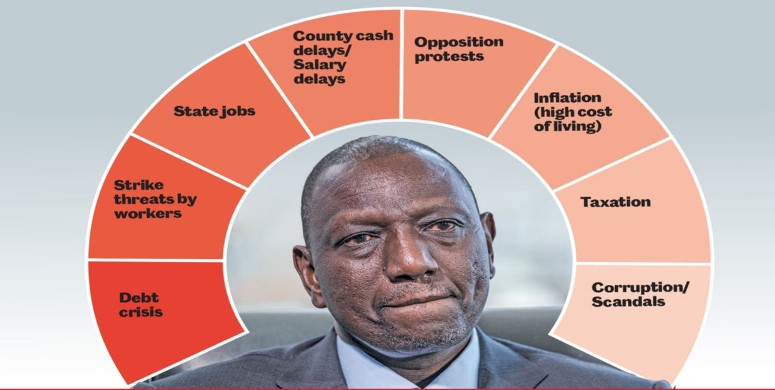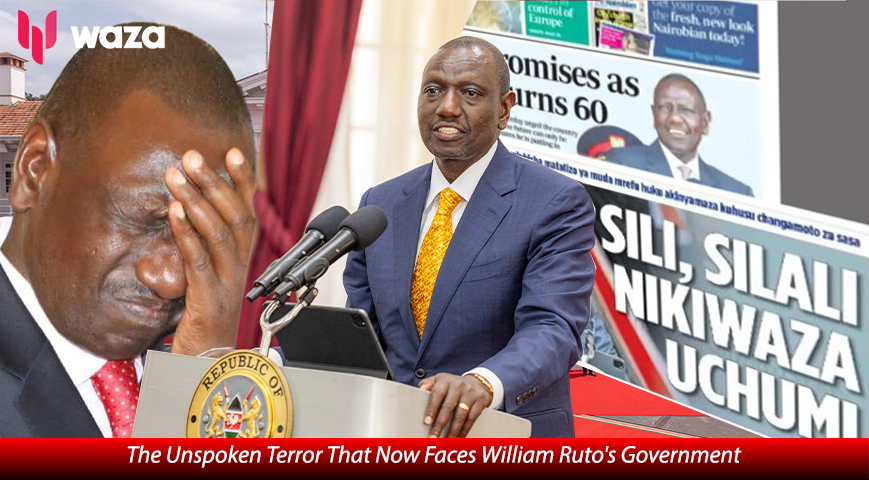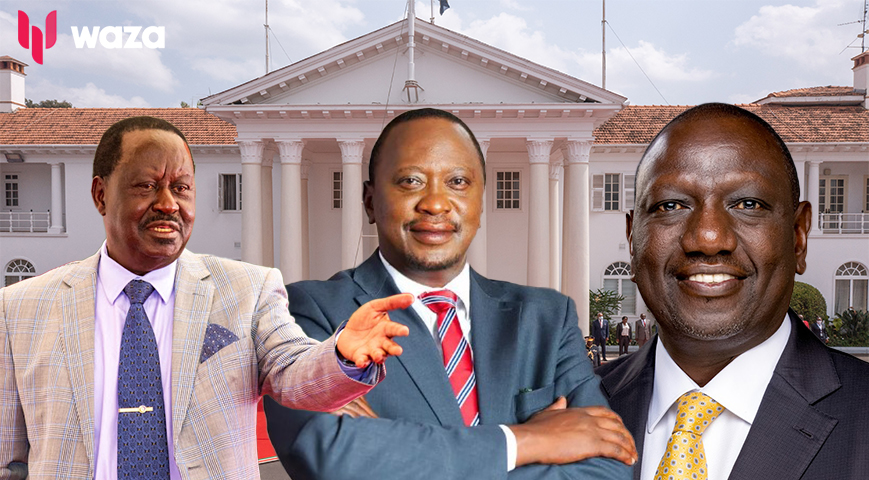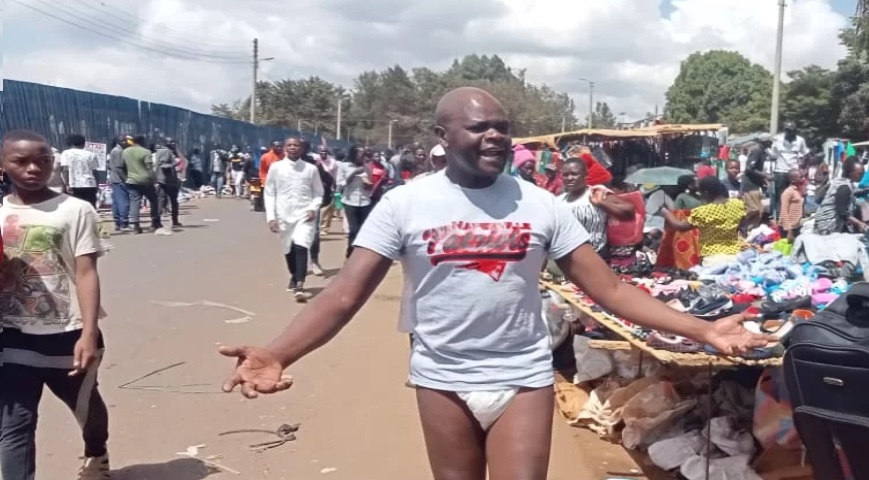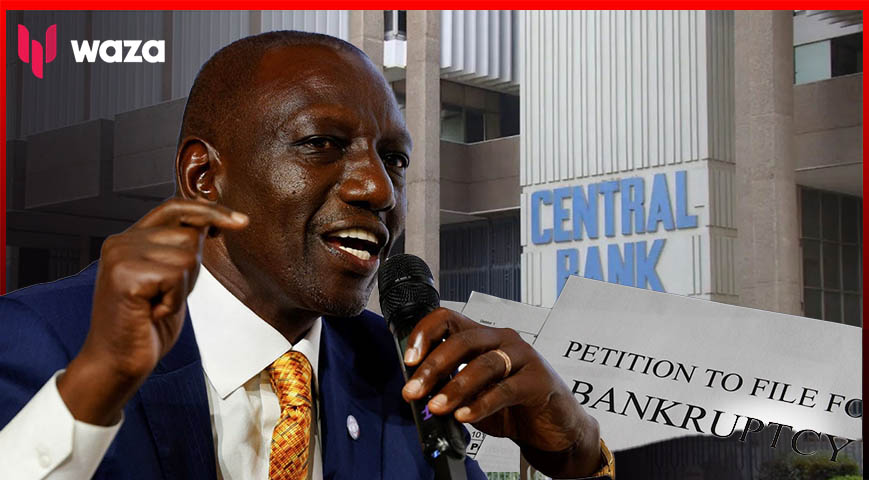The word "terror" is an understatement when we start highlighting the challenges that William Ruto has faced or is still facing.
Ruto's woes started way before when he was still the deputy president of Kenya and an outcast of the ruling party, which was then the Jubilee coalition. The bromance between Uhuru Kenyatta and Ruto was so intense that nobody could believe it when they became political nemesis.
The divide between them grew after July 22nd, with the arrest of Cabinet Secretary of the National Treasury Henry Rotich, who was accused of corruption. Henry Rotich was charged with conspiracy to defraud the government of more than Sh63 billion. Rotich maintained his innocence and was freed on bond the next day.
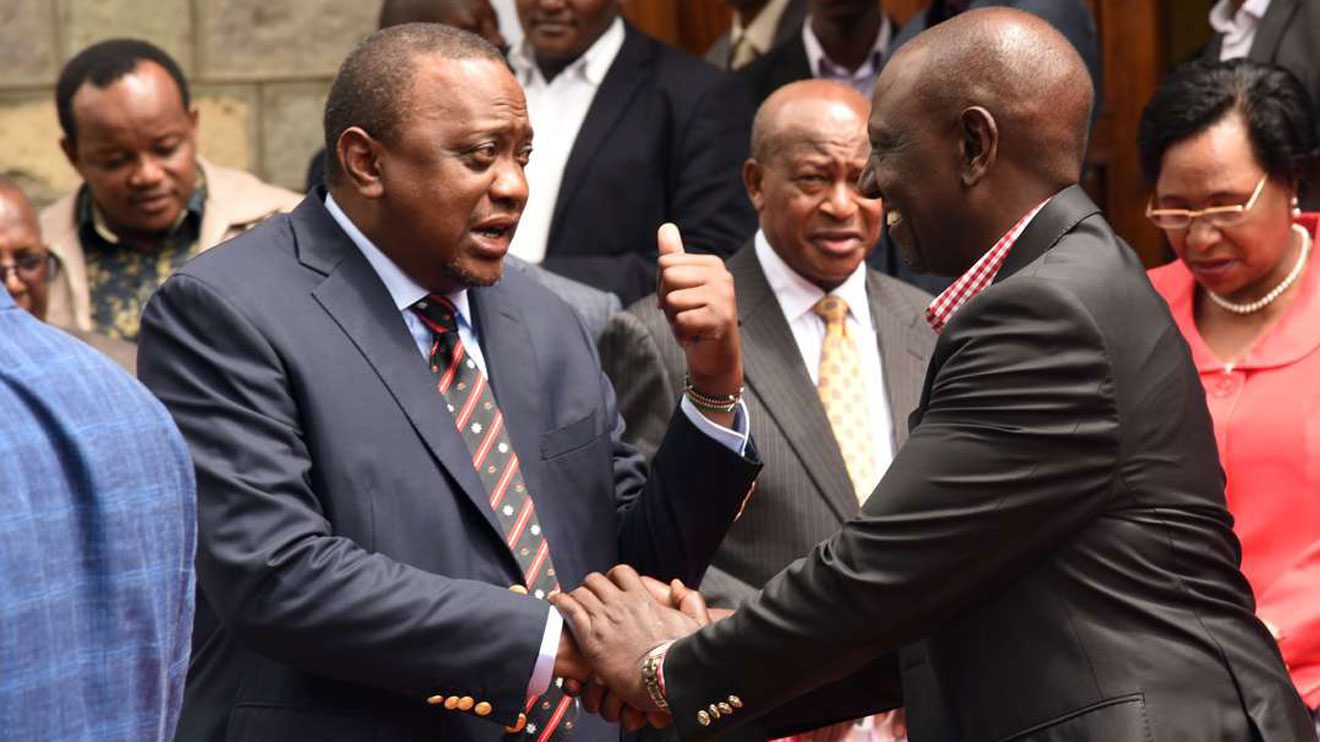
Did you read this?
Ruto had made a 'special' plea to Uhuru Kenyatta to appoint Rotich as the CS in 2013.
Ruto held his tongue and did not have much to say about the corruption case against Rotich, who back then was a key figure from his populous political support base in the northern Rift Valley region. This drew a wedge because Uhuru was so vindictive against those rooting funds from his government.
Also Read> Who Owns Kenya, Cartels Or Deep State? Mastermind Behind The People Who Hold Kenya's Economy Captive
Another political development that brought tension between the two top leaders was the BBI Initiative. Ruto and his "minions" did not hide their distrust of Uhuru and his handshake brother Raila Odinga. This will later lead to their significant fallout in March 2018.
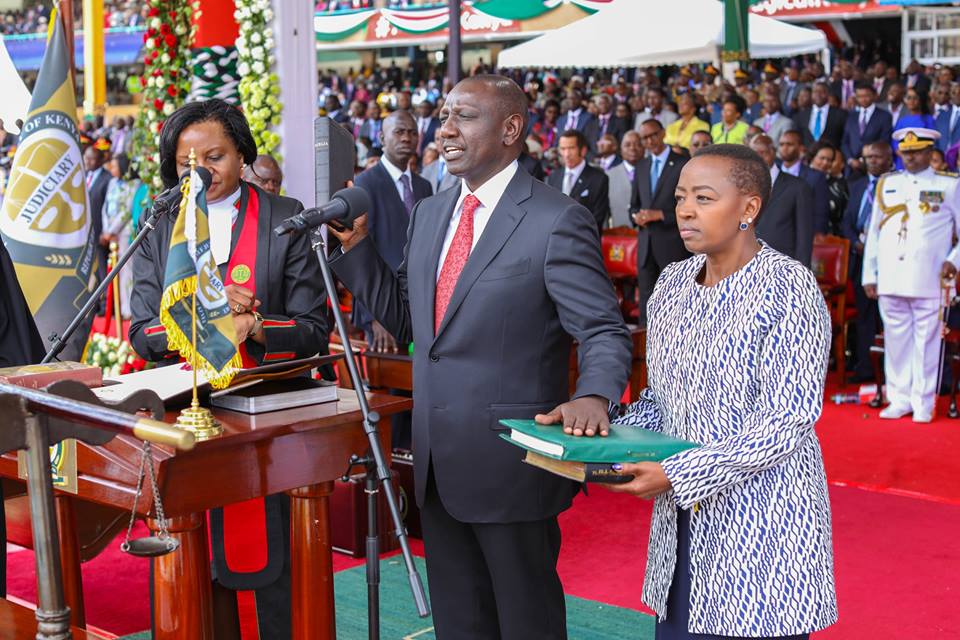
…
Fast forward to August 2022, when William Ruto was declared the 5th president of Kenya by the election board commission chair, Wafula Chebukati.
According to official results, the incumbent deputy president, William Ruto, defeated veteran opposition leader Raila Odinga and narrowly avoided a run-off by garnering 50.5% of the vote.
Although his win was highly disputed, Ruto would be sworn in on September 13th, 2022, at the Kasarani stadium.
Also Read> Hit Or Miss? Tracking President Ruto’s Promises One Year In Office
After Ruto took over the government, Kenyans knew "Messiah" had come to save them from the high cost of living, only for them to realize it was "Zakayo," the tax collector.
President William Ruto had promised to lower the cost of living and create economic opportunities during his campaign. Still, after taking office, he implemented additional levies, which increased the price of everything from gasoline to power to food, disenfranchising many of those who supported him.
Now let's look at the real issues affecting the Kenya Kwanza Regime
- High Cost Of Living
- Debt
- Corruption
- Over taxation
- High Cost Of Living
The term "Nikiweka Bibilia chini" has taken on a life of its own and will follow President William Ruto for months, if not years, to come.
The President spoke in a show of force about how he would break up cartels firmly established in many economic areas. He said immediately he was sworn in, he would ensure that food prices were lowered.
Ruto's statements were interpreted to suggest that he would confront the past regime's shortcomings in dealing with issues that Kenyans had been facing.
One year later, Kenyans are struggling with the high cost of living. The economy has not changed in any way. Things are only getting worse.
Prices have increased, and essential commodities are no longer affordable to lower-class citizens. Families having three meals a day are now reduced to one meal.
There's a lot of talking but minimal action. These people promised heaven and earth, but what are we getting in return? Taxes on top of taxes on top of taxes.
Before the elections last year, Ruto said, "We are forming a government that will turn around the economy and put money in the pocket of common mwananchi," noting that the Jubilee administration had failed to do so.
After being sworn in, Ruto has adamantly stated that the cost of living and the other challenges Kenyans face cannot be sorted out overnight, that "there are no miracles," and that this has to be done "systematically."
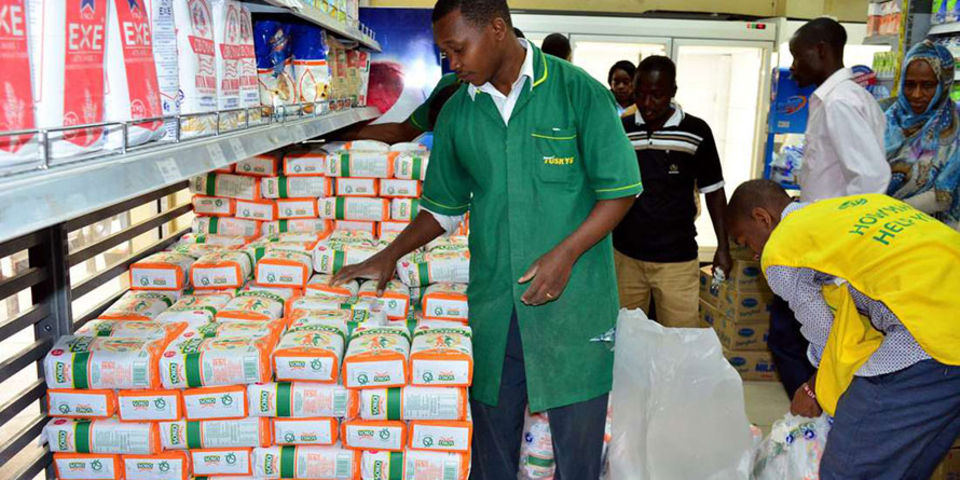
- Debt
President Ruto insists that he inherited an economy burdened by debt, inflation, and a weakening currency from his predecessor, uhuru Kenyatta's government.
He took over the government with More than Sh500 billion in unpaid bills from ministries and state agencies.
According to the most recent Treasury figures, outstanding debt reached Sh504.7 billion after the most recent fiscal year in June, a 40.39 percent increase over Sh359.5 billion the year before and the most significant yearly increase ever.
As per the Controller of Budget, the government spends Ksh.3.16B Daily On Debt Repayments, so don't be surprised by these additional taxes. The government is trying to finish paying the debt.
Nyakango said, "The debt as of June 30th was Ksh.10.25 trillion, exceeding the legal limit."
Due to an 18% increase in public debt, the exchequer must work harder to earn money to meet its obligations to settle the Ksh.5.42 trillion external debt and Ksh.4.83 trillion domestic debt.
Even though the Kenya Revenue Authority (KRA) expects to collect Ksh 2.7 trillion by the end of the fiscal year 2023–2024, a larger percentage of the money will go toward debt repayment.
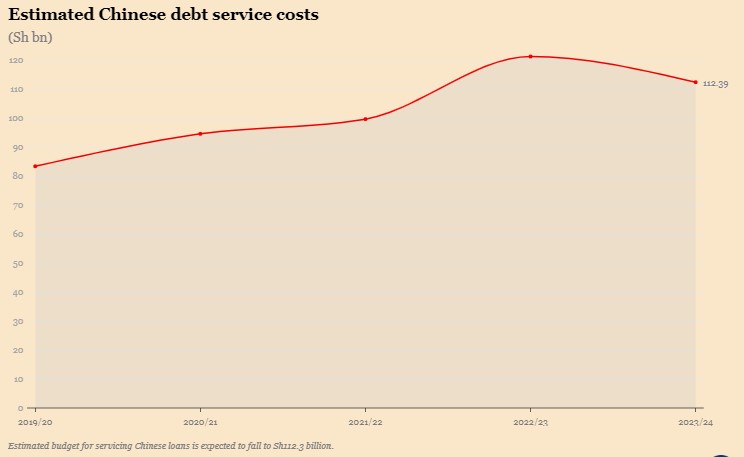
- Corruption
Kenyans have long urged the government and Ethics and Anti-Corruption Commission (EACC) officials to take a harsher stance against influential individuals accused of significant fraud and graft cases that have contaminated numerous key industries of East Africa's largest economy.
Before Kenya Kwanza took over the government, the sitting deputy president, Rigathi Gachagua, was accused of embezzlement funds amounting to 202 million. The court ruled that the legislator's Sh202 million be frozen in June 2020 while inquiries into the funds' acquisition continued.
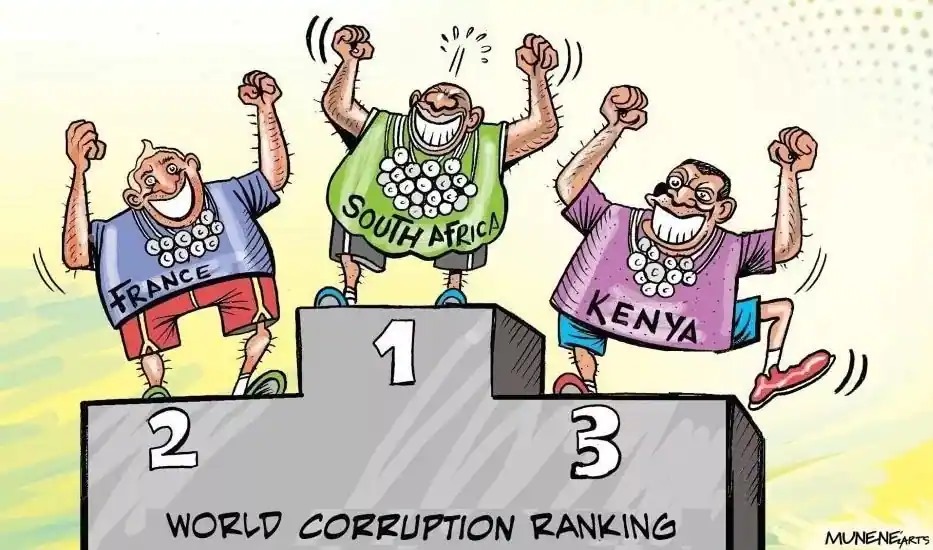
As soon as the popular politician became the deputy president, his accounts were unfrozen, with the court citing it as "insufficient evidence."
Other politicians have been involved in significant graft cases in Ruto's government, like Jackson Mandango with the Finland saga.
Read this article to learn more about corruption in the kenya kwanza government. > CORRUPTION KING! Which Politician Wears The Crown Of Corruption In Kenya?
Ruto has been adamant that corruption must end in Kenya. "Kenya is no longer a host to such criminals. If they continue engaging in corruption, they must leave the country. This must stop. It will stop," he said.
- Over taxation
To raise more money to support President William Ruto's ambitious programs, the National Treasury recommends implementing extra taxes.
The Kenya Kwanza government's draft medium-term debt strategy for 2024–2025 and 2026–2027 includes several significant tax reform recommendations from the National Treasury.
Over-taxation can be detrimental even though it is the only natural way to raise money to pay for government spending on goods and services.
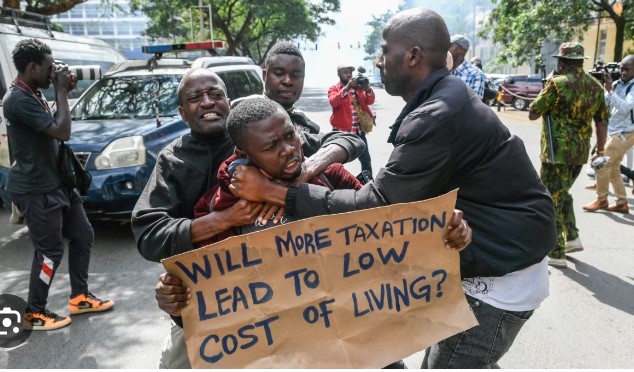
Too much taxation lowers consumer demand, hinders innovation and entrepreneurship, causes inflation, and fosters tax avoidance and evasion. Additionally, excessive taxes discourage foreign investment and, if people's standard of life rises beyond what can be supported, can result in political instability.
President Ruto should consider these fresh ideas carefully to ensure they will stay within his goals.
With this government taking the lead, Kenyans should prepare for tough times ahead because lawmakers have approved unpopular tax increases with supporters of the President who once vowed to reduce the cost of living.
Other factors that could be preventing the government from active Maendeleo include
- Opposition
- Cartels
- Insecurity
- Public Policies
- Dynasties
